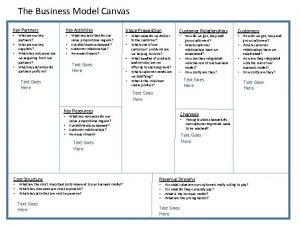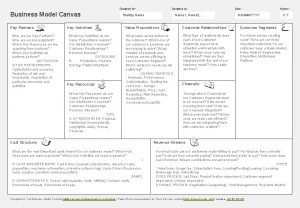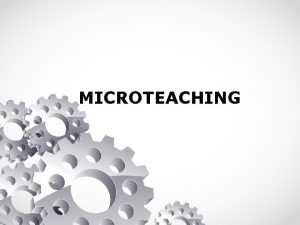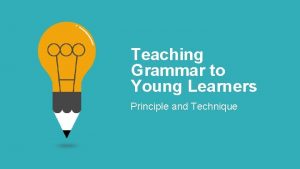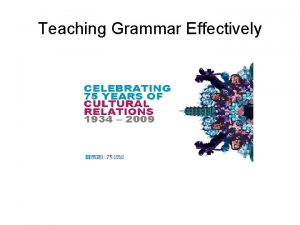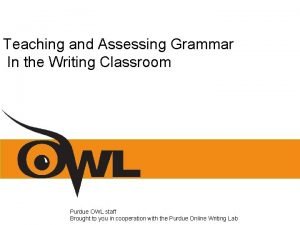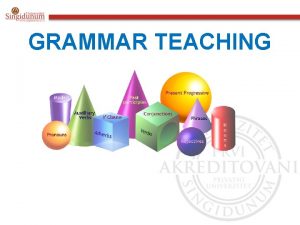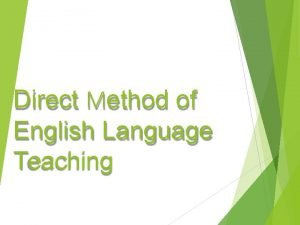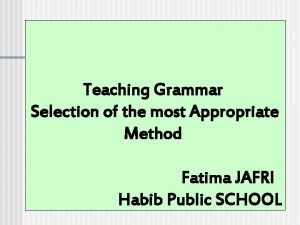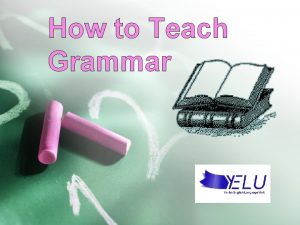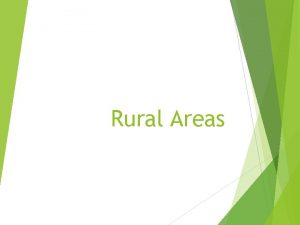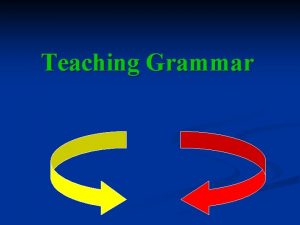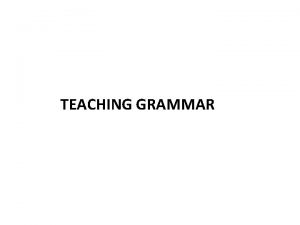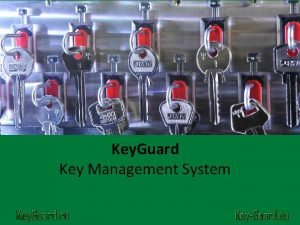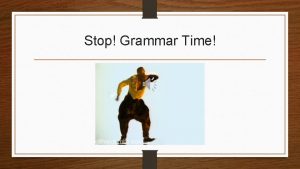Welcome Grammar Workshop Key Areas of Grammar Teaching










- Slides: 10

Welcome Grammar Workshop

Key Areas of Grammar Teaching in Foundation stage. Speaking • They use language in the past, present and future form accurately when talking about events that have happened or are to happen. Reading • They read simple sentences. Writing • They write simple sentences which can be read by themselves and others. • They sometimes use full stops accurately in their writing.

Sentences What is a sentence? 4 different types of sentence. From Foundation they need to know a sentence contains a verb.

You can’t write a sentence without being able to say a sentence. You can’t say a sentence without hearing one.

Speaking and Listening Talk to the children about everything! Listen to stories using books, oral telling, drama and film. We have a key text that we focus on for half a term- this allows the children to learn the book so they can say complete sentences of narrative on their own. We use a wide range of role play toys to allow children to react stories they know well and to make up their own stories.

Speaking and Listening- What can I do at home? Talk to your child about what they have been doing at school and about up coming events. Enjoy the homework challenge sheets. Role play with your child. Talk about your adventures with Pip /Pop or what adventures they might have when they come to stay with your child. Correct your child’s speech when appropriate.

Reading We read a variety of texts but we focus on one; we use both fiction and non fiction. Learn how to say more complex sentences by reciting parts / all of a text. We look out for capital letters and punctuation in books. We look out for verbs.

Reading- What can I do at home? Read to your child regularly and enjoy favourite books over and over again- It will really help them when they come to writing sentences. Look out for punctuation in books. How does “!” or “? ” change the way you read a sentence?

Writing • We practise saying sentences and changing parts of sentences we know. • We show children how to write a sentence and explain what we are thinking. • Provide the children with a wide range of opportunities to write both with an adult and on their own. • Writing area. • Role play area. • Chalk boards. • White boards. • Computers. • Special papers- invites, text message sheets, cards, speech bubbles etc.

Writing- What can I do at home? • Praise all writing attempts. • Encourage your children to tell you what there writing says. ( It doesn’t matter if you can’t read it!) • Allow them to watch you write or show them your writing. • Talk about capital letters, punctuation and verbs you use. • Remind them to use punctuation at the end of a sentence they write.
 Welcome welcome this is our christmas story
Welcome welcome this is our christmas story Business model canvas example
Business model canvas example Business model canvas tripadvisor
Business model canvas tripadvisor Difference between micro teaching and traditional teaching
Difference between micro teaching and traditional teaching Grammar examples
Grammar examples Grammar feedback examples
Grammar feedback examples Ways to address grammar in the writing classroom ppt
Ways to address grammar in the writing classroom ppt Covert grammar teaching examples
Covert grammar teaching examples Teachers role in direct method
Teachers role in direct method Advantages and disadvantages of inductive method
Advantages and disadvantages of inductive method Grammatical signals
Grammatical signals

